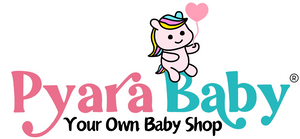What to Know Before Buying a Used Breast Pump: A Complete Guide

When it comes to feeding your baby, a breast pump can be an essential tool. However, buying a brand-new one can be quite costly. For budget-conscious parents, purchasing a used breast pump can seem like a smart move. But before you dive in, there are several crucial factors to consider to ensure both your baby's safety and your peace of mind.
- Safety First: Understand the Risks
Before purchasing a used breast pump, it's important to understand the potential health risks. Breast pumps are classified into two categories: closed-system and open-system.

Closed-System Pumps: These are designed with a barrier to prevent milk from entering the pump's motor, making them safer to use second-hand.
Open-System Pumps: These lack a barrier, meaning milk can potentially enter the motor, leading to contamination risks. It's generally not recommended to buy open-system pumps used.
Always check the manufacturer's guidelines to see if the pump you're considering is a closed-system or open-system model.
- Check for Wear and Tear

When buying a used breast pump, it's crucial to examine the condition of the pump thoroughly. Look for signs of wear and tear, especially on parts like tubing, valves, and membranes, which can degrade over time.
Tubing: Ensure that the tubing is clear and free from any mold or milk residue.
Valves and Membranes: These are often the first parts to wear out. Make sure they are in good condition, as worn-out parts can affect the pump’s suction power.
If any parts look questionable, it's a good idea to replace them with new ones before use.
-
Consider Replacement Parts

Even if the pump itself is in good condition, certain parts should be replaced for hygiene reasons. Items like breast shields, tubing, and valves are typically available for purchase separately. Replacing these parts ensures that you’re using a clean and safe pump.
Make sure the replacement parts are compatible with the pump model you’re buying. Some older models may have parts that are harder to find, which could be a hassle in the long run.
- Verify the Pump’s History

It's essential to know where the pump came from and how it was used. You can ask for the purchase invoice, to check how old the pump is and certain pumps like Spectra also show the number of hours it's been used for. You can definitely ask for the same.
Also, consider the pump's age. Pumps typically have a limited lifespan, usually around one to two years of regular use. If the pump is older than that, it may not function as effectively as a newer one.
- Sanitize Before Use
Even after replacing parts, it's crucial to thoroughly clean and sanitize the entire pump before use. Follow the manufacturer’s instructions for cleaning, which usually involves boiling parts or using a steam sterilizer.

If the pump comes with a storage bag or carrying case, ensure that these are also cleaned and free from any mildew or odors.
- Evaluate the Cost Savings
While buying a used breast pump can save you money, weigh the potential savings against the risks and additional costs. If you need to replace several parts or purchase a sterilizer, the total cost may not be much lower than buying a new pump.
Conclusion
Buying a used breast pump can be a smart and economical choice, but it's essential to take the necessary precautions to ensure safety and functionality. By understanding the risks, checking the condition, and replacing key parts, you can make an informed decision that benefits both your budget and your baby.
Remember, your baby’s health comes first, so don’t hesitate to invest in a new pump if you have any doubts about a used one. Happy pumping!


